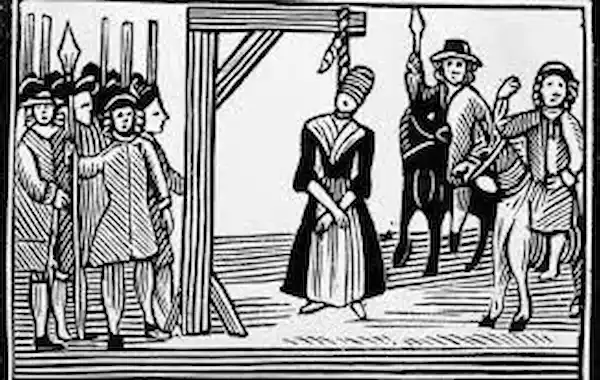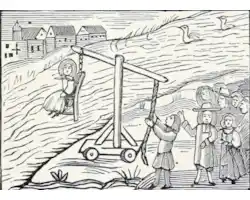Was your ancestor persecuted for their faith? Condemned as a witch? Or perhaps it was they who led the investigations? Let's try and imagine the mind-set of our early 17th century ancestors. Janet Few is fascinated by the era and her she shares her thoughts
The 400th anniversary of the sailing of the Mayflower, is a good opportunity to focus on those people on our family tree who were alive in 1620, whether they were Mayflower passengers or not. We can go some way towards recreating the world of these 17th century ancestors by researching the homes they lived in, the food they ate, the clothes that they wore. A few of us might even be fortunate enough to have portraits of ancestors who lived 400 years ago.
How did our 17th-century ancestors think and feel?
To try to understand the feelings and attitudes of those ancestors is much more difficult. If those long-ago ancestors are to become more than just names on a family tree, we need to speculate about how they might have thought and felt. We may never come up with the answers but it is important to ask the questions. What made those 102 individuals on the Mayflower decide to make such a life changing, and indeed life threatening, journey? Why did our own ancestors make the life choices that they did?
How far were our 17th-century ancestors persecuted for their faith or political beliefs?
The very fact that some felt the need to set sail on the Mayflower to achieve religious freedom, suggests that some were experiencing religious persecution. How would matters of faith have impacted on your family? Political differences too might have been fermenting. After all, 22 years after the Mayflower sailed, brother would be fighting brother in the Civil War. Would your ancestors have sided with Parliament or with the king? Maybe they just tried to keep a low profile, or took up arms for a particular side because they were pressurised into doing so to by their employer or landlord.
What were relationships & friendships like in the 17th century?
How did our ancestors interact with their close family? How did they cope with the high infant mortality rates and the threats of serious illness? The Mayflower passengers and crew just missed a serious outbreak of plague that hit Plymouth in 1625. What about your ancestors’ relationships with others who lived nearby?
Court reports suggest that neighbours did not always get on. We find accusations of slander, of assault, of witchcraft. Intolerance of difference is not a modern phenomenon; in many ways, human nature does not change. In the 17th century, superstition and rumour were never far away and it was often the poor and the marginalised who became the victims.
Was your ancestor accused of witchcraft in the 17th century?
You might wonder if your ancestor was accused of witchcraft. This site is ostensibly about the Essex witch trails but includes lists of accusations in other English counties . Exciting though it might be to find a relative on that list, it is not just about the accused. Would your ancestors have been amongst the ‘bewitched’, or would they have been one of the accusers? Peer pressure has always been incredibly powerful and it might have been very difficult to defend a suspected witch against the force of public opinion. Even if your family did not play a prominent role in a witchcraft case, imagine the atmosphere in a community where there was a fear of being ‘overlooked’, or equally a fear of being condemned for an act that others viewed as somehow sinister.
Think of your widowed 9x great granny, living on her own at the edge of the village, dispensing the odd herbal cure or two, becoming a little irascible and eccentric, maybe upsetting a few neighbours. Those neighbours get sick, what next for 9x great granny?
Sadly, unless they left diaries or letters, we will never know what our ancestors thought or how they felt but we owe it to them to try to understand the forces and prejudices at work in their time.
Janet Few is an historian, author, genealogist and historical interpreter, who occasionally appears as her C17th alter ego Mistress Agnes. She is the author of Coffers, Clyster, Comfrey and Coifs: the lives of our seventeenth century ancestors, which is currently on offer on her website.
Her new historical novel, Sins as Red as Scarlet, is based on real 17th-century people and events. The story revolves around intolerance in many forms and culminates in accusations of witchcraft. It will be available from 29 August. Details of how to pre-order can be found here.
For more 17th-century resources see Janet’s Swords and Spindles site.








